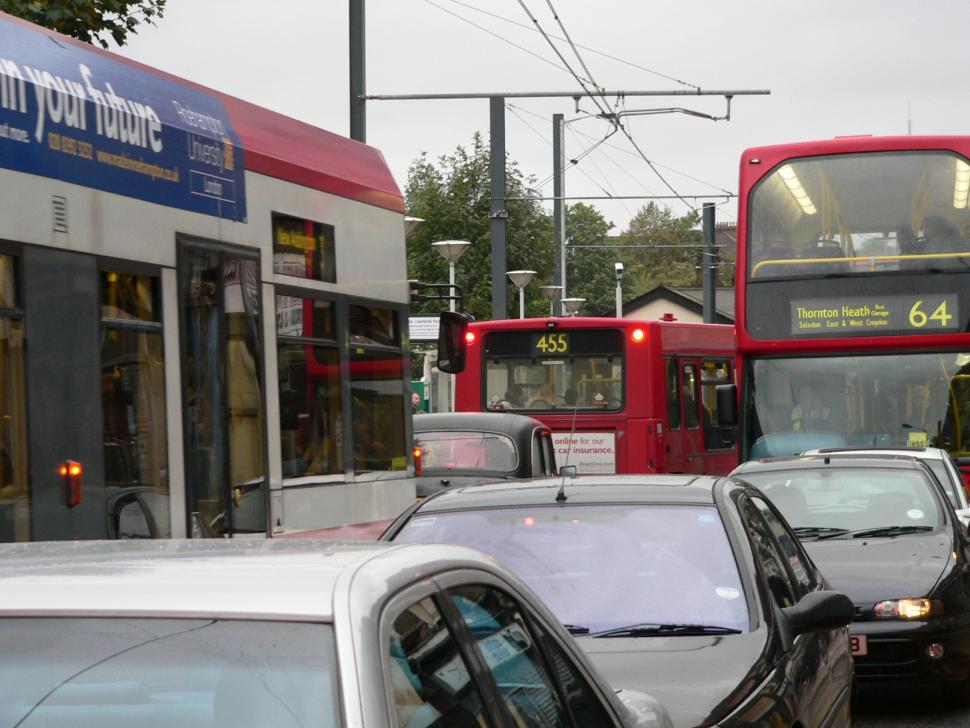- News
- Reviews
- Bikes
- Accessories
- Accessories - misc
- Computer mounts
- Bags
- Bar ends
- Bike bags & cases
- Bottle cages
- Bottles
- Cameras
- Car racks
- Child seats
- Computers
- Glasses
- GPS units
- Helmets
- Lights - front
- Lights - rear
- Lights - sets
- Locks
- Mirrors
- Mudguards
- Racks
- Pumps & CO2 inflators
- Puncture kits
- Reflectives
- Smart watches
- Stands and racks
- Trailers
- Clothing
- Components
- Bar tape & grips
- Bottom brackets
- Brake & gear cables
- Brake & STI levers
- Brake pads & spares
- Brakes
- Cassettes & freewheels
- Chains
- Chainsets & chainrings
- Derailleurs - front
- Derailleurs - rear
- Forks
- Gear levers & shifters
- Groupsets
- Handlebars & extensions
- Headsets
- Hubs
- Inner tubes
- Pedals
- Quick releases & skewers
- Saddles
- Seatposts
- Stems
- Wheels
- Tyres
- Health, fitness and nutrition
- Tools and workshop
- Miscellaneous
- Tubeless valves
- Buyers Guides
- Features
- Forum
- Recommends
- Podcast
news
 Traffic Jam in Croydon Pic: Chris McKenna
Traffic Jam in Croydon Pic: Chris McKennaVision for cutting London transport emissions by 60% unveiled
Achieving sharp reductions in London's transport emissions – up to 60% by 2025, 80% by 2050 – is possible according to a major study led by Halcrow and the University of Oxford. But it would require a comprehensive, multi-strand policy approach.
Using a bespoke, city-based transport emission simulation model, the study demonstrates the impact of various potential policy decisions.
Commenting on the study, Halcrow project manager and research fellow at Oxford's transport studies unit, Dr Robin Hickman said: “The findings from this study demonstrate how effective packaging of a wide range of interventions – including promoting low emission vehicles, investment in public transport, walking and cycling, behavioural change measures, promoting ecological driving and slower speeds and freight planning – can help London move towards a 60 per cent reduction in CO2 emissions by 2025 and onto even deeper cuts beyond”.
An executive summary, simulation model and background report outlining the findings of the 'visioning and backcasting for transport in London' (VIBAT) study have now been published.
The VIBAT London project was funded by the University of London's UrbanBuzz programme, a knowledge-transfer scheme aimed at developing “genuinely sustainable forms of development and community in London and the wider Southeast region”.
The project has been published setting out how London can achieve deep CO2 reduction targets in transport. A range of future year scenarios have been tested, with policy pathways developed towards a 60 per cent reduction in transport CO2 emissions by 2025, rising to 80 per cent by 2050.
It has developed a backcasting approach to transport planning in London – visioning a sustainable transport future for 2050 and 2025 and “casting back” to the present day in terms of steps required to implement a carbon efficient transport system.
Many measures have been put in place throughout London to help reduce CO2 emissions, including the London Congestion Charge and 20mph zones, but the AA president Edmund King said that these could actually be increasing CO2 emissions.
He said: “If we are smart about urban transport we can reduce CO2 and congestion without spending millions. Congestion and CO2 can be reduced by improving traffic flow through co-ordination of road works, phasing of lights and good parking policy.
“If we continually obstruct traffic with excessive traffic calming, we will increase congestion and CO2. New technology to improve fuel efficiency will be the biggest contribution to reducing CO2 from road transport.'
Transport secretary Lord Adonis announced plans to cut carbon dioxide emissions earlier this year and the promotion of cycling was high on the agenda. Lord Adonis said that the green transport measures would save an additional 85 million tonnes of CO2 over the period of 2018-22.
The bike industry would do well to observe the changes within the automotive sector. Legacy brands are struggling to compete. ...
Indeed, it's a choice of Made in China vs "Designed/Engineered/Built" in England, which we all know means the same thing....
I live near and cycle past a few private schools in Highgate (North London). When they break up it's like 'reclaim the streets'; it's possible to...
We'll see. Positive action taken on every report I've made so far, but my guess is it's just warning letters so far for the zig zag line offence.
Yes, I've got a blind dog. That's the ONLY reason that I own a massive wankpanzer.
He also can't seem to make up his mind as to whether he's the Managing Director or the "CEO".
I guess what is disturbing is that the average price of tires are getting far out of the realm of reasonable. Even with these 7 tires the average...
Love my Lights and Motion lights. But it's not 2010 anymore. Many Chinese lights are better for half the money, without safety issues. Keep in...
Enjoyed the humour in your write up. Stunning paint job too. Loved the glasses will provide" "a better view in the peloton." Cheers!
Glad to see the BBC is still doing a bang-up job of alienating left and right in equal measure. Keep up the good work, Auntie.